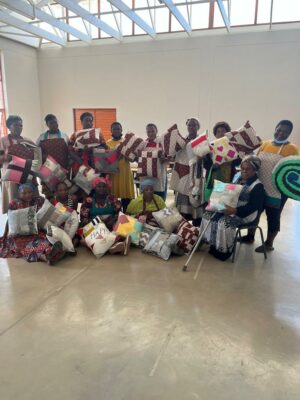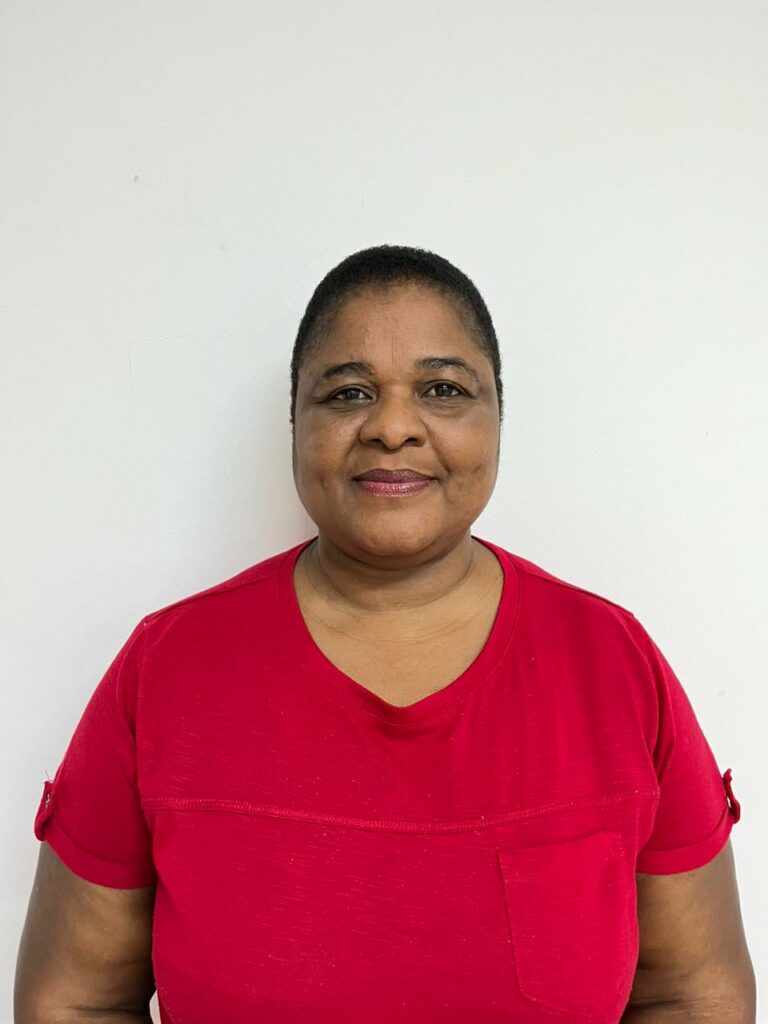Spotlight on early-career researchers: Buhle Francis


My name is Buhle Francis, I am a scholar-activist based in the coastal town called Makhanda, where I work in the University currently known as Rhodes, in the Environmental Learning Research Centre (ELRC). I work with the coastal communities scattered along the coastline provinces of Western Cape, Eastern Cape, Northern Cape and KwaZulu Natal. In particular, I have built a close relationship with the Eastern Cape coastal communities, where I closely work with the small-scale fishers, especially those that formed fishing cooperatives.
I also work with coastal women and youth. My research focus is very much action-based and co-engaged: it spontaneously responds to a range of injustices along the South African coastline. Through this action-based research, I engage on ocean governance, ocean livelihoods, ocean livelihood diversification and gender. Previously, my work has focused on communities living along protected areas, addressing questions related to livelihoods, natural resources governance, climate change, climate coping and climate adaptation.
What’s your greatest achievement since you started working for the One Ocean Hub?
I would like to bring out just three greatest achievements that I pride myself in, since joining the OOH. It is important that I bring a little background to the first one: I joined the OOH in February, 2020 and within a month we all went into a national lockdown due to COVID-19 pandemic, where all movement was restricted. I hadn’t yet met any SSF in person, and yet through the Coastal Justice Network (CJN) – a WhatsApp group to communicate and share what was happening in various locations along the coastline – I was able to create and build relationships and offer concrete support to SSFs. Today, CJN has grown to include over 100 SSF leaders, with women included.
My second greatest achievement was being able to respond to and fulfil the wishes of some of the SSF women in the Eastern Cape, by assisting them to extend and diversify their livelihood options through two pilot “sewing projects” (see the full story here). While the project is at its infancy, the women have organised themselves into a business entity where the sewing project is handled as an income generating project which is cushioning them in periods when the fishing activities are low and sometimes not possible. This is tangible, sustainable contribution to their livelihoods and will leave a permanent legacy after the Hub.
My third greatest achievement is the work I have been involved in with other CJN colleagues and the coastal communities against offshore oil and gas exploration. We were able to engage with others and assist the fishers’ voices to be heard against the seismic surveys, leading to the significant Makhanda High Court ruling on the 1st September 2022 that the exploration rights that were granted to Impact Africa and Shell along the Wild Coast were unlawful. There was a lot of hard work put behind the scenes to ensure that the fishers and the Wild Coast communities attended and were part of the process.
How does your work contribute to shaping the One Ocean Hub’s interdisciplinary endeavours?
I am an ecologist/environmental scientist who has been in the past few years transitioning into social sciences. My core team at the ELRC that is led by Dr Dylan McGarry is very much focused on art-based research approaches and uses Empatheatre approach as a form of transgressive learning and decolonial research and praxis, which is a cutting-edge approach that is catalysing huge changes and is now explored also in Namibia. Also, our CJN work contribute to an array of interdisciplinary endeavours under the Hub
What opportunity has the Hub provided you to lead on innovative research? How has the Hub enhanced your leadership skills?
By providing funding and being flexible to establish the “sewing projects” as ocean economy diversification for women; this is an innovative project I co-developed and led. It is not only an opportunity for me as a researcher to grow, but it is action-research that is responding to a need that has been identified by – a need that has not been imposed on –women. In doing so, it has created opportunities for me as a researcher to identify new research areas, but it also has supported the leadership of local women.
In addition, at the national level, I facilitate/ co-facilitate workshops with other experienced researchers. I work closely with Irna Senekai from the Centre for Integrated Post-School Education and Training at Nelson Mandela University, and Kira Erwin from Durban University of Technology, whose work has shaped and improved mine. I learn a lot also from Jackie Sunde, University of Cape Town, whose work with small-scale fishers is amazing. These collaborations would not have been possible without the Hub, that brought all these South African universities together.
The Hub has offered training and capacity-enhancing activities for early-career researchers like me, which have enhanced my leadership skills and taught me to listen and learn. Age wise am old, I have gone past my youth and could be possibly gone beyond early career. However, my career in the ocean research space is less than four years old. Furthermore, the Hub collaborations with international organisations as FAO and UNESCO, which adds value to mine and creates an opportunity for my work to reach international audiences. For example, I recently contributed as a co-author in a written submission on gender and the human right to a healthy environment for the UN Special Rapporteur on Human Rights and the Environment.
Also, work of Hub leaders like Professor Elisa Morgera from Strathclyde University inspire me a lot. I recently had an opportunity to submit an online application process (the outcome is yet to be received) however, what stood out to me was her attention to detail and how to basically respond – that exercise improved my work going forward.
What, in your view, have been the Hub’s most impactful activities?
The research we carry out with small-scale fishers under the CJN and Empatheatre (which has been showcased at the UN Climate Summit/COP27 in November 2022), we have managed to assist fishers to win a series of court cases on seismic surveys.
What are the aspects of working in a collaborative environment such as the One Ocean Hub that you value the most?
“A pair of working horses can pull a higher gross weight than one alone could”, goes the old saying, that’s the power of collaboration which I have experienced in the Hub through our CJN work and that I value most. Collaboration has made some of our difficult work easier – the kind of scholar-activism that we do within the Hub is not easy and is usually met with challenges, but through collaboration, we get to spread the load across and rely on multiple areas of expertise and insights, which makes navigating complex issues possible. We learn from those that have done this work before us and it is enjoyable to do it.
What are the challenges and new demands that emerging researchers face today?
The main challenge is time management, in order to try and balance up research, publications and online events – while having a family life. In addition, as a scholar-activist, it is not easy to examine my own biases and behaviours to avoid stereotypical responses, and to show persistence when faced with difficult problems, and be able to remain calm in stressful situations. Another challenge I face is that I am old in many ways (age and experience in certain areas) but fairly young in ocean governance space, so when I look at my age and the new career, there are times when I feel like the two do not add up, but I get motivation from learning new things every day.
What is your advice to fellow emerging researchers working on a global development project?
Age must not limit early-career researchers, especially black women who are already burdened with seeking carriers at the their “prime age”. It is difficult, but there is understanding and support. All early-career researchers should get involved in the opportunities that are created by the Hub, which allow to expand knowledges, which is what we all strive to acquire.
Photo by: Buhle Francis